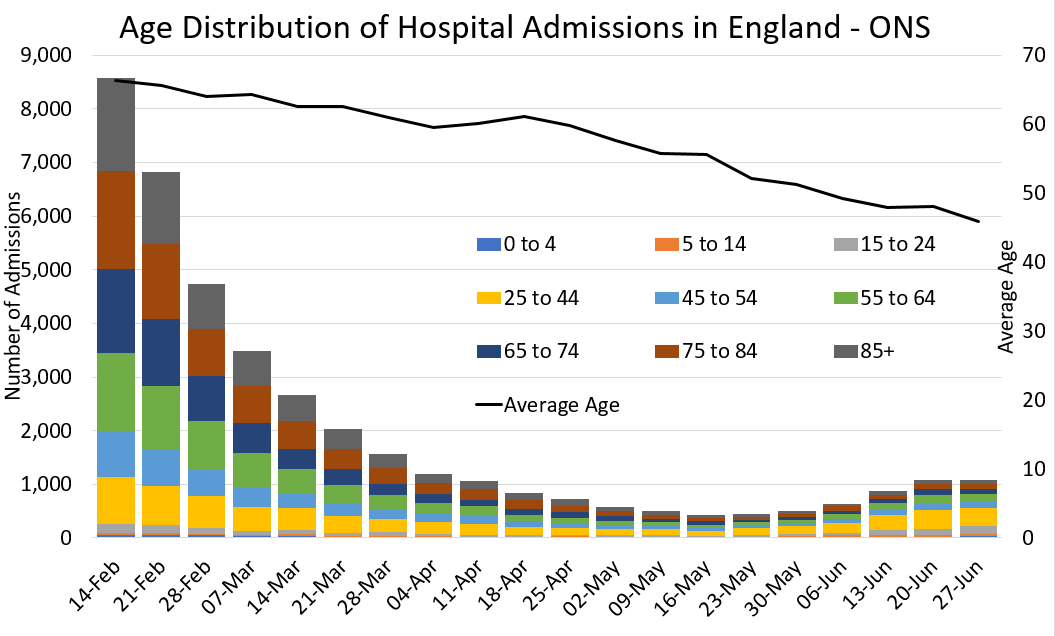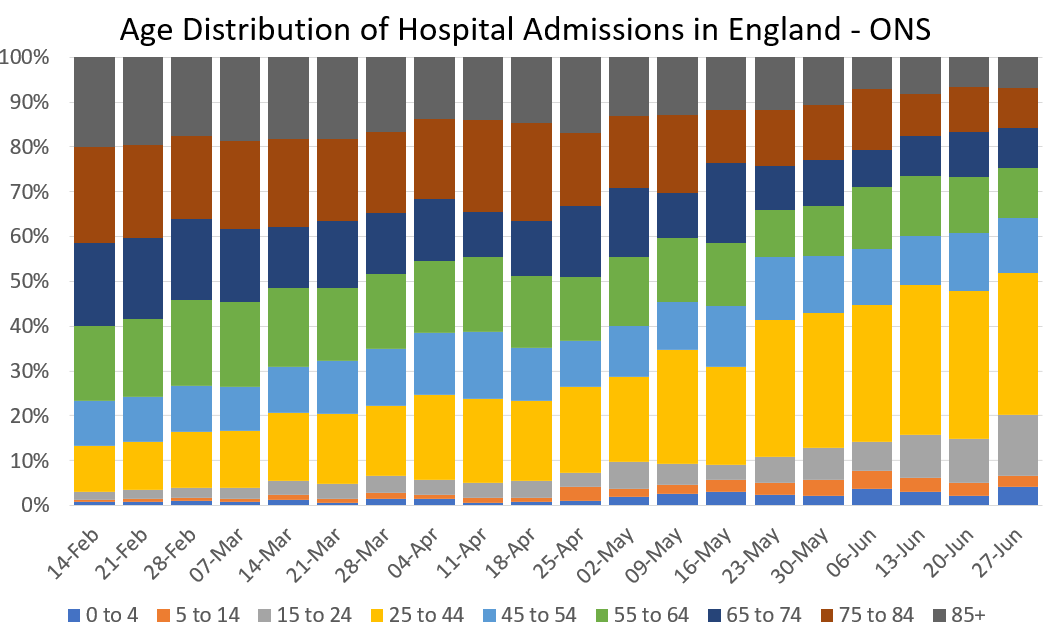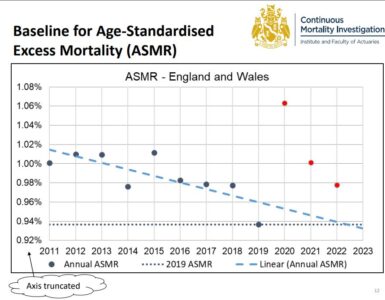Younger Admissions
In our note ‘Accelerating Admissions’, we discussed the implications of recent NHS hospital data (the title says it all!). We examined the age distribution of COVID-19 admissions, which showed a clear reduction in age through 2021. Our analysis was limited by broad age bands (in particular, the 18 to 64 age range which is of particular interest).
We have now analysed ONS data on hospitalisation rates by age, which offers much greater granularity but required some (simple) calculations. The data provide a more granular age breakdown of admissions, expressed as rates per 100,000 people. Using ONS population data we can convert these rates into counts, and calculate the average age in each band. This allows us to see how the age distribution has moved.
This graph shows total COVID admissions in England (left axis), split by age, along with the movement in average age (right axis):

Here we have the same data, re-presented to highlight the proportions by age group:

It is clear that the average age decreased significantly over the period, by around 20 years from 66 (in mid-February) to 46 (last week of June). This is a major shift, and reflects the high vaccination proportions achieved at higher ages.
Fewer Deaths
We can draw some conclusions about the likely mortality impact of this age reduction.
This paper included an estimate of mortality rates for COVID-19 hospital patients by age band. We can apply the mortality rates to the decreasing age range seen above.
Doing this shows a reduction in the average mortality rate from around 20% in mid-February to 10% by end June. Thus, we can confidently say that the impact of this age reduction is a halving of mortality.
This simple calculation has not assumed any change to COVID mortality (for hospitalised patients) relating to the Delta variant. We are not aware of any conclusive results on the mortality of the Delta variant (compared with earlier variants) on a ‘like for like basis’. This is because the UK deaths arising from Delta include vaccinated people, while deaths from previous variants were largely ‘pre-vaccine’.
Conclusion
- The age of people admitted to hospital with COVID-19 in England has dropped dramatically this year. The average age decreased by 20 years, from 66 to 46, between February and June;
- This age reduction alone would be expected to reduce mortality of those patients by 50%.















